第30章
Yet not at all do those primordial germs Roam round our members, at that time, afar From their own motions that produce our senses-Since, when he's startled from his sleep, a man Collects his senses.Death is, then, to us Much less- if there can be a less than that Which is itself a nothing: for there comes Hard upon death a scattering more great Of the throng of matter, and no man wakes up On whom once falls the icy pause of life.
This too, O often from the soul men say, Along their couches holding of the cups, With faces shaded by fresh wreaths awry:
"Brief is this fruit of joy to paltry man, Soon, soon departed, and thereafter, no, It may not be recalled."- As if, forsooth, It were their prime of evils in great death To parch, poor tongues, with thirst and arid drought, Or chafe for any lack.
Once more, if Nature Should of a sudden send a voice abroad, And her own self inveigh against us so:
"Mortal, what hast thou of such grave concern That thou indulgest in too sickly plaints?
Why this bemoaning and beweeping death?
For if thy life aforetime and behind To thee was grateful, and not all thy good Was heaped as in sieve to flow away And perish unavailingly, why not, Even like a banqueter, depart the halls, Laden with life? why not with mind content Take now, thou fool, thy unafflicted rest?
But if whatever thou enjoyed hath been Lavished and lost, and life is now offence, Why seekest more to add- which in its turn Will perish foully and fall out in vain?
O why not rather make an end of life, Of labour? For all I may devise or find To pleasure thee is nothing: all things are The same forever.Though not yet thy body Wrinkles with years, nor yet the frame exhausts Outworn, still things abide the same, even if Thou goest on to conquer all of time With length of days, yea, if thou never diest"-What were our answer, but that Nature here Urges just suit and in her words lays down True cause of action? Yet should one complain, Riper in years and elder, and lament, Poor devil, his death more sorely than is fit, Then would she not, with greater right, on him Cry out, inveighing with a voice more shrill:
"Off with thy tears, and choke thy whines, buffoon!
Thou wrinklest- after thou hast had the sum Of the guerdons of life; yet, since thou cravest ever What's not at hand, contemning present good, That life has slipped away, unperfected And unavailing unto thee.And now, Or ere thou guessed it, death beside thy head Stands- and before thou canst be going home Sated and laden with the goodly feast.
But now yield all that's alien to thine age,-Up, with good grace! make room for sons: thou must."Justly, I fancy, would she reason thus, Justly inveigh and gird: since ever the old Outcrowded by the new gives way, and ever The one thing from the others is repaired.
Nor no man is consigned to the abyss Of Tartarus, the black.For stuff must be, That thus the after-generations grow,-Though these, their life completed, follow thee;And thus like thee are generations all-
Already fallen, or some time to fall.
So one thing from another rises ever;
And in fee-simple life is given to none, But unto all mere usufruct.
Look back:
Nothing to us was all fore-passed eld Of time the eternal, ere we had a birth.
And Nature holds this like a mirror up Of time-to-be when we are dead and gone.
And what is there so horrible appears?
Now what is there so sad about it all?
Is't not serener far than any sleep?
And, verily, those tortures said to be In Acheron, the deep, they all are ours Here in this life.No Tantalus, benumbed With baseless terror, as the fables tell, Fears the huge boulder hanging in the air:
But, rather, in life an empty dread of Gods Urges mortality, and each one fears Such fall of fortune as may chance to him.
Nor eat the vultures into Tityus Prostrate in Acheron, nor can they find, Forsooth, throughout eternal ages, aught To pry around for in that mighty breast.
However hugely he extend his bulk-
Who hath for outspread limbs not acres nine, But the whole earth- he shall not able be To bear eternal pain nor furnish food From his own frame forever.But for us A Tityus is he whom vultures rend Prostrate in love, whom anxious anguish eats, Whom troubles of any unappeased desires Asunder rip.We have before our eyes Here in this life also a Sisyphus In him who seeketh of the populace The rods, the axes fell, and evermore Retires a beaten and a gloomy man.
For to seek after power- an empty name, Nor given at all- and ever in the search To endure a world of toil, O this it is To shove with shoulder up the hill a stone Which yet comes rolling back from off the top, And headlong makes for levels of the plain.